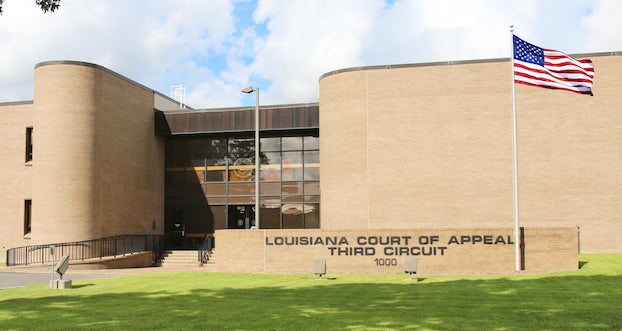Audit: Former mayor may have violated law
Published 8:46 am Tuesday, June 9, 2015
ELIZABETH — The former mayor of Elizabeth may have violated state laws when he and three others received a share of $117,354 without legal obligation, a state investigative audit has found.
The report released Monday by Legislative Auditor Daryl Purpera also accuses former mayor Robert Crafton of falsifying minutes of a meeting authorizing the payments.
The report also found Crafton appears to have given himself an unauthorized pay raise and extra paychecks, some of which were used to pay for medical tests for his wife.
The release of the state report follows allegations made last month in a routine town audit released by Royce Scimemi.
The state’s findings have been turned over to the District Attorney’s Office, Louisiana State Police and the Louisiana Board of Ethics.
According to the report the town paid Crafton, Town Gas System Supervisor Alvin Earl and vendors Elizabeth Natural Gas and AMESCo more than $117,000 last June without apparent legal obligation to do so.
In 2007, the town entered into a 20-year gas sale contract with the Public Energy Authority of Kentucky (PEAK). In 2012, the contract was terminated early, and as a result the town received a $382,101 payment. Town records found $117,354 — about 30 percent of the amount received from PEAK — was paid to Crafton, Alvin Earl and the two vendors.
Payments of $38,210 were made to Alvin Earl, Elizabeth Natural Gas and AMESCo. Crafton received $2,724.
Crafton appears to have falsified minutes of a board meeting authorizing the payments, the audit said. By falsifying records and directing payments to himself and others for which there was no legal obligation, Crafton may also have violated the Louisiana Constitution and state law.
Crafton reimbursed the funds in January, before resigning in February after serving 12 years as mayor. Reimbursements were also made by Earl, Elizabeth Natural Gas and AMESCo.
In a hand-written response to the findings, Crafton said he had contacted each council member about the payments and four of the five members agreed to the payments “knowing that we had no legal obligation to do so,” but noted that without the vendors the town could not have been a participant in the endeavor.
“There was never any intent to violate or give the perception of ethics violation,” Crafton wrote.
The report also found that Crafton was paid $4,800 in excess pay, including two additional payroll checks of $3,200 and unused leave payouts of $1,600 of which he may not have been entitled.
Crafton sought advance payments so he could pay the oncologist for a PET scan for his wife who was diagnosed with cancer because Medicare would not pay for the scan and payment was required upfront.
He has repaid $3,200 for the overpayments.
In addition, auditors found Crafton increased his salary without proper authority. Crafton may also not have been entitled to leave benefits and did not complete time sheets.
Crafton allegedly instructed the town clerk — verbally and in writing — to pay his monthly salary twice per month. He also stopped reporting quarterly travel expenses and instead received two payroll checks each month.
Crafton told auditors he requested a single advance payment to pay personal expenses, but could not explain why he received two additional payroll checks.
The board of alderman also appears to have violated state law by failing to fix the salaries of municipal officers by ordinance and by reducing the police chief’s salary during his current term. State law requires the board to set compensation of the mayor, aldermen, clerk and police chief by ordinance and prohibits it from reducing the pay of an elected official during the current term.
Salary recommendations voted on by the board on Jan. 6 including a salary increase for the town clerk and mayor and a salary decrease for the police chief were not made by ordinance as required by law. The board may have also violated state law by reducing the police chief’s salary during his current term.
The board also appears to be in noncompliance with the state’s open meeting law when it approved salary adjustments for town employees and elected officials in writing instead of a live voice vote as required by law.
In a letter to the legislative auditor, Interim Mayor Wayne Earl said the board was unaware that it had approved amending salaries and reducing the police chief’s salary at the meeting. He said the board met in March and adopted some salary increases.
The town also appears to be improperly classified as a “town” under the Lawrason Act. Because it has less than 1,000 residents, state law requires the board to adopt a resolution requesting the governor to change its classification to a “village.” The population is 532, according to a 2010 census.
The town has sent a request for reclassification to the governor and is waiting on certification from the U.S. Census Bureau.
Other findings in the audit include the town failed to adopt its budget by ordinance and did not prepare an annual budget for the general fund as required by law.
Wayne Earl said the town is in agreement with the audit findings and listed recommendations. Officials are adopting policies and procedures and working to come into “strict compliance” with the recommendations, he said.
To compile the report, investigators from Purpera’s office interviewed town employees, reviewed town records and documents and reviewed state laws.lSFlbOnline: www.lla.state.law.us
(MGNonline)




